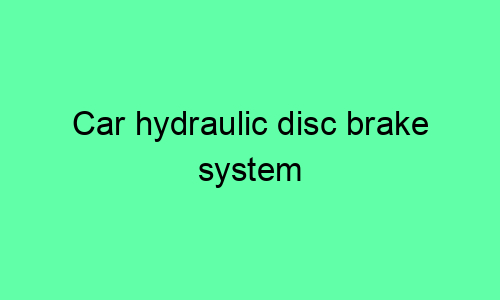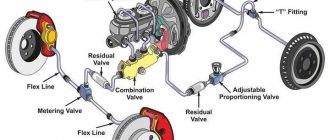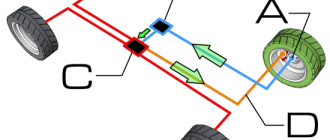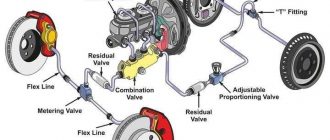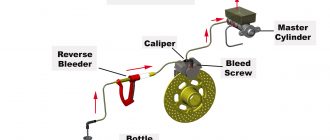Car Hydraulic Disc Brake System
Introduction
The car hydraulic disc brake system is a type of brake system that uses hydraulic pressure to apply force to the brake pads, which in turn rub against the brake rotors to slow down or stop the vehicle. This system is commonly used in modern cars and is generally more effective than drum brakes, which use friction to stop the vehicle.
Components of a Hydraulic Disc Brake System
The main components of a hydraulic disc brake system include:
- Brake pedal: The brake pedal is what the driver presses to activate the brakes.
- Master cylinder: The master cylinder is a reservoir that stores brake fluid and converts the force applied to the brake pedal into hydraulic pressure.
- Brake lines: The brake lines are a set of tubes that carry brake fluid from the master cylinder to the brake calipers.
- Brake calipers: The brake calipers are mounted on the wheel hubs and contain the brake pads that rub against the brake rotors.
- Brake rotors: The brake rotors are the discs that the brake pads rub against to slow down or stop the vehicle.
How a Hydraulic Disc Brake System Works
When the driver presses the brake pedal, the master cylinder converts the force applied to the pedal into hydraulic pressure. This pressure is then transmitted through the brake lines to the brake calipers. The brake calipers use the hydraulic pressure to squeeze the brake pads against the brake rotors, which slows down or stops the vehicle.
Advantages of a Hydraulic Disc Brake System
Compared to drum brakes, hydraulic disc brake systems offer several advantages, including:
- Increased braking power: Hydraulic disc brakes provide more braking power than drum brakes because they use hydraulic pressure to apply force to the brake pads.
- Smoother braking: Hydraulic disc brakes provide a smoother braking experience than drum brakes because they do not use friction to stop the vehicle.
- Reduced fade: Hydraulic disc brakes are less likely to fade than drum brakes because they use hydraulic pressure to apply force to the brake pads, which reduces heat buildup.
- Longer lifespan: Hydraulic disc brakes have a longer lifespan than drum brakes because they are less likely to wear out.
Disadvantages of a Hydraulic Disc Brake System
While hydraulic disc brake systems offer several advantages, they also have some disadvantages, including:
- More expensive: Hydraulic disc brakes are more expensive than drum brakes to purchase and maintain.
- More complex: Hydraulic disc brakes are more complex than drum brakes, which can make them more difficult to repair.
- More prone to leaks: Hydraulic disc brakes are more prone to leaks than drum brakes because they use hydraulic fluid to apply force to the brake pads.
Conclusion
Hydraulic disc brake systems are a type of brake system that uses hydraulic pressure to apply force to the brake pads, which in turn rub against the brake rotors to slow down or stop the vehicle. This system is commonly used in modern cars and is generally more effective than drum brakes, which use friction to stop the vehicle. While hydraulic disc brake systems offer several advantages, they also have some disadvantages. It is important to weigh these factors carefully when deciding whether or not to upgrade to a hydraulic disc brake system.
